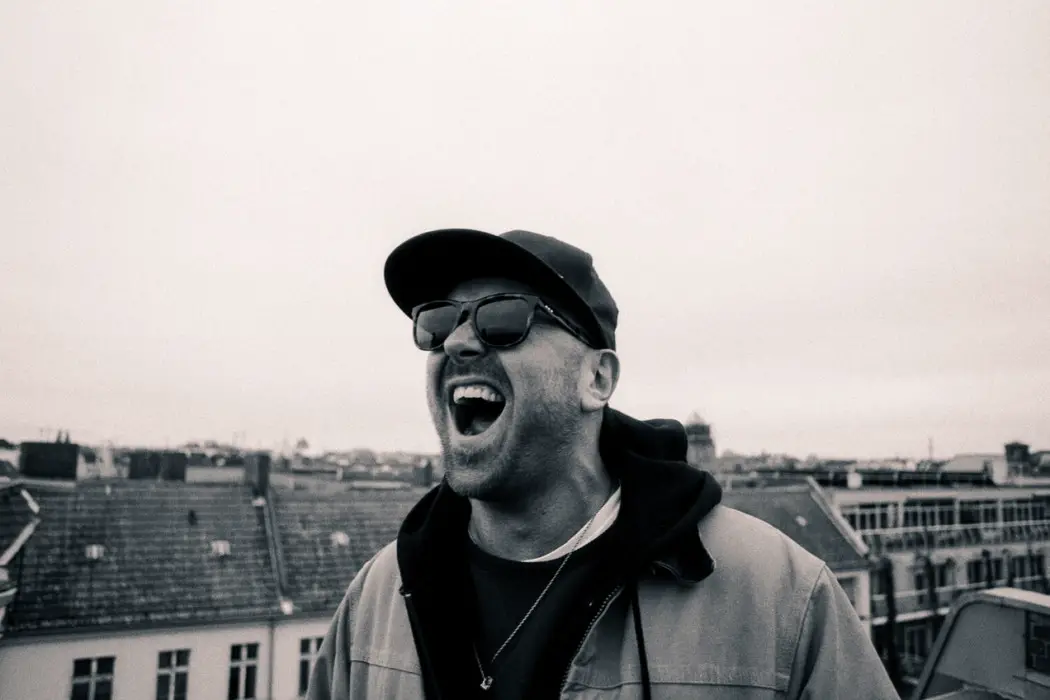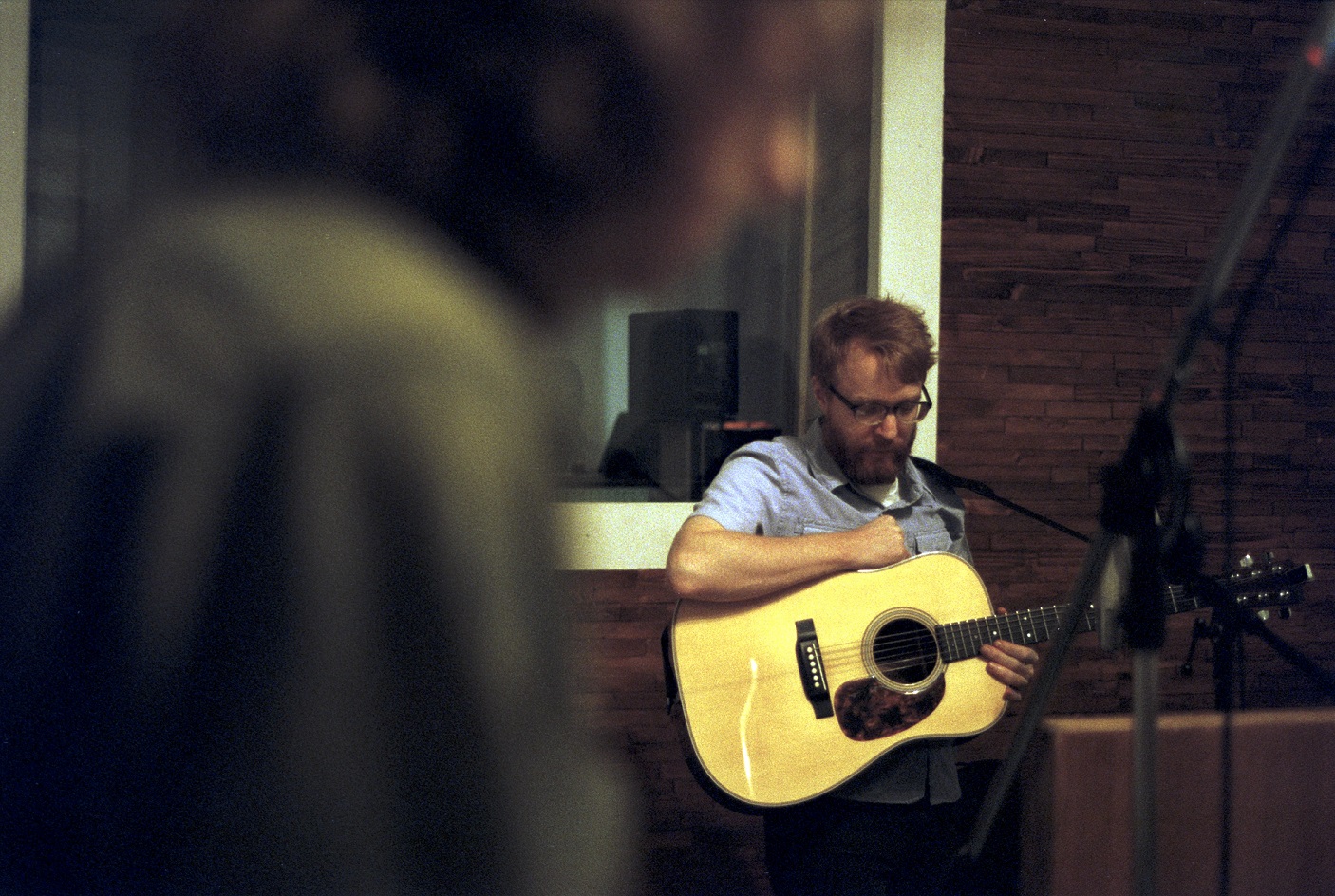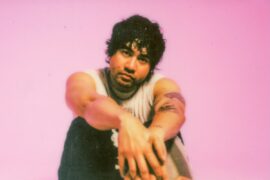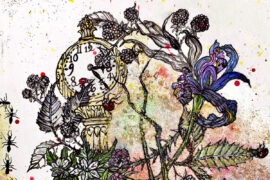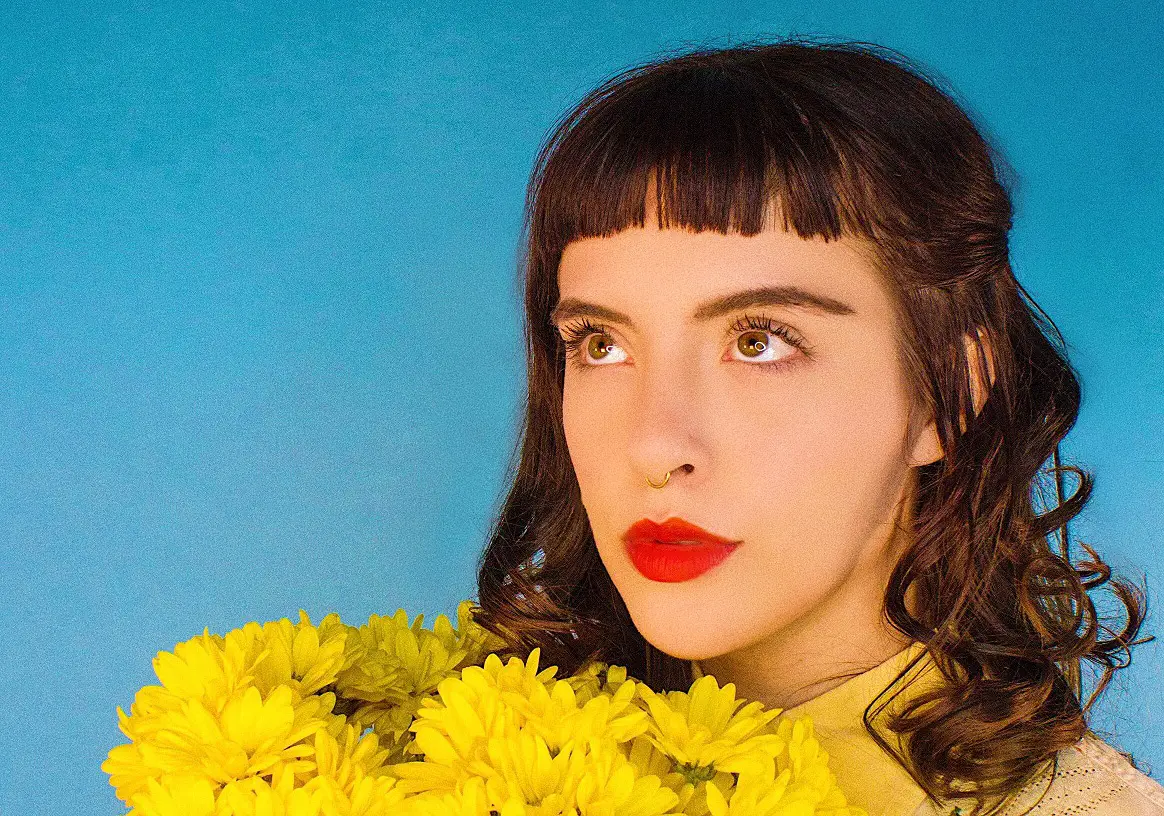Atwood Magazine chatted with James Gillespie about his intense involvement in everything he releases, performing with global mega-star Pink, comprehending streaming success, his latest single “Kerosene” & more!
“Kerosene” – James Gillespie
No one will question that streaming has massively changed the way we listen and discover music in a way that would be unthinkable to most more than a couple of decades ago. Whether the transformative impact of streaming has been, on balance, beneficial is a point of contention, but for many artists it has completely changed their lives beyond recognition and opened up unthinkable opportunities.
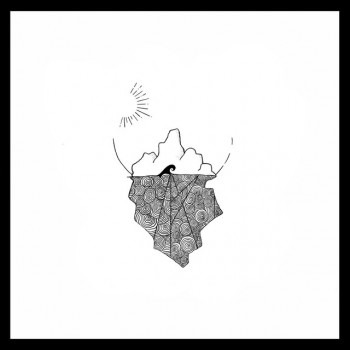
Since arriving in London with hardly a penny to his name, James Gillespie has clocked up over 46 million streams and sold out his debut headline show at London’s Omeara; an incredible venue which has hosted a wide range of emerging stars on their path to superstardom. With a European tour and a headline show at Camden’s Dingwalls on the horizon, it’s clear that the appetite to see James Gillespie live is showing no signs of relenting.
All of Gillespie’s releases are delightfully distinct but still fit perfectly with each other; like a perplexingly puzzling yet initiative jigsaw. “Beyond Today” will prove instantly relatable to anyone that’s ever struggled to find hope amid a dark time. While his latest single “Kerosene” chronicles undying infatuation in a brutally raw and instantly captivating manner.
While Gillespie’s soulful sound will prove alluring to fans of Hozier and Dermot Kennedy, it’s evident that he isn’t trying to emulate anyone else. In an age where streaming has pressured some artists to relinquish some creative control, in order to satisfy an insatiable demand for new music, Gillespie’s dedication to his craft sees him play a part in every aspect of the creative process. That devotion shows, and the result thus far has been a set of timeless tracks, which are often simultaneously painfully relatable and refreshingly reassuring.
Atwood Magazine spoke with James Gillespie about his intense involvement in everything he releases, performing with global mega-star Pink, comprehending streaming success, his latest single “Kerosene” & more!
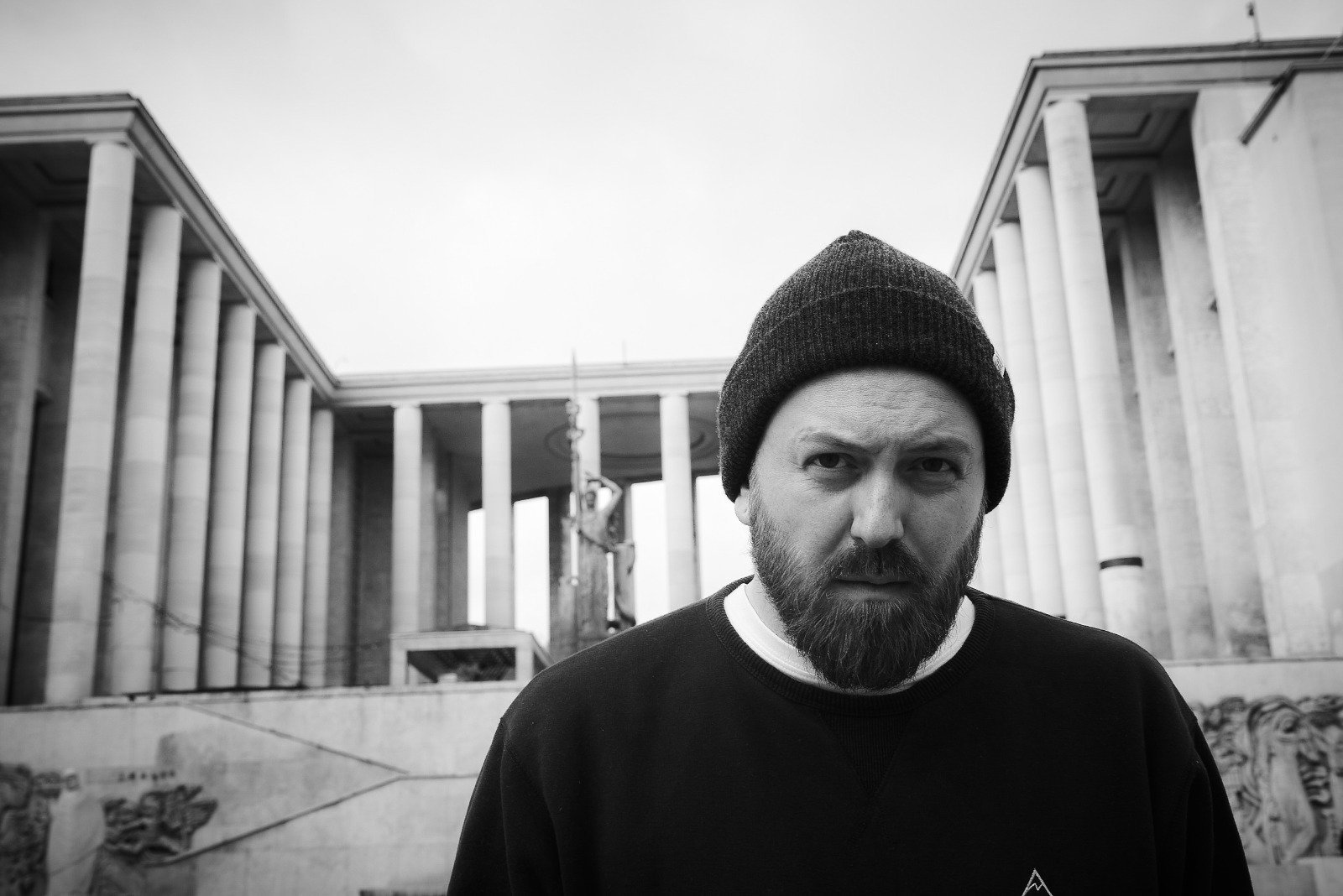
:: A CONVERSATION WITH JAMES GILLESPIE ::
Atwood Magazine: In June you released “Kerosene,” which speaks to that undying infatuation with someone. How did that track come about?
James Gillespie: That was one of those kind of half-drunk moments in my house; I don’t really play the keys at all. But I decided that I would borrow a friend’s keyboard for a little bit because I wanted to try some stuff out. Then I got this wicked little Wurlitzer sound going on that I put through a bunch of effects. Because I don’t know what I’m doing I tend to somehow manage to create these cool sounds. After a few whiskeys, it just sort of appeared out of nowhere.
Just completely out of nowhere?
James Gillespie: Yeah, I mean obviously it didn’t come from absolutely nowhere; it was a night where I wasn’t spending it with the girl I wanted to be spending it with. Because that person takes up so much of my life, when I wasn’t with them, I was just left with this kind of emptiness a little bit. “Kerosene” was about realizing how dark it is without that person.
Your last EP was entitled Wants and Worries. Where did the inspiration for that title come from? And how did it speak to the themes of EP?
James Gillespie: I was thinking about all the shit that I normally write about and I was thinking about what each song is. Is every song about what I’ve got and not being able to deal with it, or is every song about something that I desperately need? I was thinking that it really is just a bunch of stuff that I want and the stuff that I do have is stuff that I worry about.
So, like, even when I’m writing a song about how lucky I am to have found the one then instead of it just being a song about how I’m happy with that, it’s also something that I’m worried about. Like what if I fuck it up? What if I lose that person? You know, that’s the constant worries and the other parts of the song are all something that I’m looking for that I haven’t found yet.
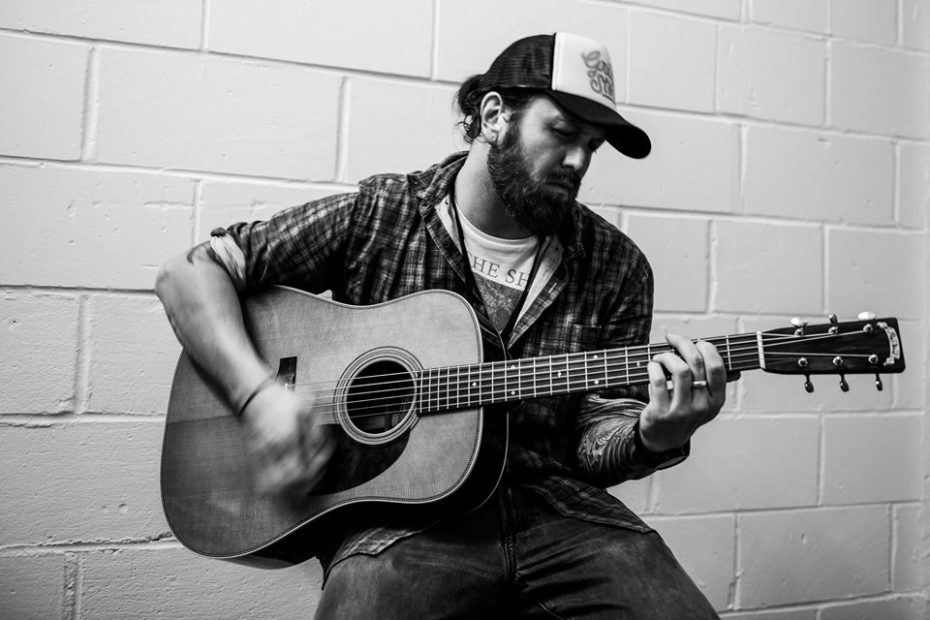
How do you go about deciding the tracklist? “What You Do” feels like such a perfect opener for Wants and Worries.
James Gillespie: I think with that stuff I tend not to think about it anymore than playing through the songs while I’m doing other stuff. Like if I’m sitting down at the computer, I’ll play the tracks in the order that I like and listen to them and kind of see what emotions it evokes in me. I’ll see if I feel like that journey of 2, 3, 4, 5 songs kind of fits and makes sense to me. Then, suddenly, if I’m hearing a track and it doesn’t quite fit with what I’m doing, then I’ll notice that straight away without really knowing and without sitting down and thinking about it too much. I think you can overthink all of that shit way too much.
If you just listen through it and if the emotion takes you on the right kind of ride or the right kind of journey, then it’s the right order. You know, just keep it simple and keep it from the heart, and if they get the right vibe from it then leave it as it is. Then once you’ve decided on it, don’t fuck with it and don’t try and overanalyse it and try to be like “oh but that one’s upbeat and this one’s downbeat and that one is about happiness and this one is about sadness. Maybe I should split the two ones that are sad and put the happy one in the middle.” As soon as you start doing that, I think you lose the emotional part of the journey and you just start thinking of it as a math sum or something like that.
Are decisions like that always completely your decision or do you ever get swayed by anyone else’s opinions?
James Gillespie: With that stuff, I’m really lucky because my label and management give me a lot of freedom. I know some artists don’t have that, but they give me a lot of freedom to do that stuff myself. So they would never say “this is the track order; this is what we think it should be and that’s it.” But you know obviously I talk to other people about it, especially the label, and if they go “I think it’s a really nice idea to have that as your first track” then obviously I’ll talk to them about it. But I would never just go “yeah, okay, I’ll do that”, I would say “oh, why do you think that is?” and then they go “oh well, that that first line on that song feels really powerful and it really connects so that’s why we feel like opening would be a really cool idea.”
It’s the same with my setlist; like I come up with the order but it’s always really nice to me to hear management or label coming in and going you know what we actually think that this is a really cool idea. I’m always up listening to that. But, in the end, they give me the freedom to kind of have the final say and any conversation like that always ends with, but obviously it’s your choice, you know, if you feel strongly the other way then we’re with you.
That’s so awesome!
James Gillespie: Yeah, I’m lucky. I know a few friends of mine who have the opposite kind of thing with their labels, were the label are like “no, this is what works the best.” It’s almost like in a movie where they’re like “we’ve done the demographics and we know if you start a song with this BPM and it’s got this cord at the beginning then it’ll strike with more people online.” I don’t have any of that, my label is really cool with that stuff.
That’s so good, so many songs right now are put out to fit certain playlists or whatever. It’s just bullshit
James Gillespie: Yeah, I think there’s a lot of stuff like that going on at the moment online and a lot of stuff on the radio too where it’s like you’ve got to have this kind of stuff or no one going is going to listen. Even with like track length, like right now I’m recording a song that’s like 2 minutes and thirty seconds. Mostly, people are just like “no, a song has to be at least 3 minutes and less than 4” and all that sort of shit. I think that that’s cool and I get that but at the same time. There’s nothing wrong with doing things your way now and again.
Watch “Kerosene (Live)” – James Gillespie
Yeah totally. There’re so many artists releasing music at the moment and loads of labels are trying to conform to certain rules so it’s so interesting to listen to something totally original that isn’t trying to follow a formula or whatever.
James Gillespie: 100% man. I also kind of have the freedom in my set to change my setlist as I play. I know I’ve kind of gone off topic here but when I play live, I have my setlist but if I think people aren’t responding I can change it up. Like if in the first five songs, people are being really silent, and not really moving very much then I have the total freedom to take a really bouncy upbeat song and just push it back by like 3 songs. Even if I’m playing with a drummer, I’ll just tell him we’re going to play this song later on when everyone’s a bit warmed up and they’re feeling a bit looser. If I’m playing a deep song and people are talking or whatever; I’ll do something that’s more upbeat. Having the freedom to change something is something that people don’t normally have that often.
That’s awesome! Speaking of playing live, you recently had a headline show at Omeara; which is one of my favourite venues in the world. How was the experience of playing there?
James Gillespie: Mate do you know what, the Omeara was actually one of my choices. I’d never played the Omeara before and I’d played huge venues as a support and I’ve done a few headline shows that’ve been in wicked places too, but the second I finished my gig before that I came off stage and I was like “Fuck, that was awesome”. Then I remember talking to my manager and he was like “mate, that was killer” and I was like “thank you man, we should do the Omeara next”. I had a feeling because I’ve seen so many great bands there and I just love the vibe. I saw Alan Raymond playing there and just fell in love with the look of the place, the vibe, the lighting, the way the crowd are kind of tilted as well so that everyone can see what’s going on. I just fell in love with everything about it, even with like the way the bar is at the back. It’s just cool.
Going on to a slightly bigger gig now. You performed with Pink at V Festival after releasing your own version of her song “Don’t Let Me Get Me.” How did that come about? And what was the experience like?
James Gillespie: It came about after I released the Pink song and then she got in touch and said, “Do you want to come perform it with me as part of my tour over in Germany?” I was like fucking a; that would be like the dream. So we set that up and then I think it must have been like a week before the show and her manager or whoever got in touch and said, “Why don’t you actually come and open up for P!NK and play for half an hour?”.
I was like okay; I’ve got some preparing to do and then we did it and then they said, “if it goes well why don’t you do the next day as well.” Then I was like “Sick, I’m down for that” so we did that, and it was awesome. Then after that, we got an email saying Pink is going to be doing the headline slot of V Festival and she’d love James to come on stage with her and perform, which was crazy.
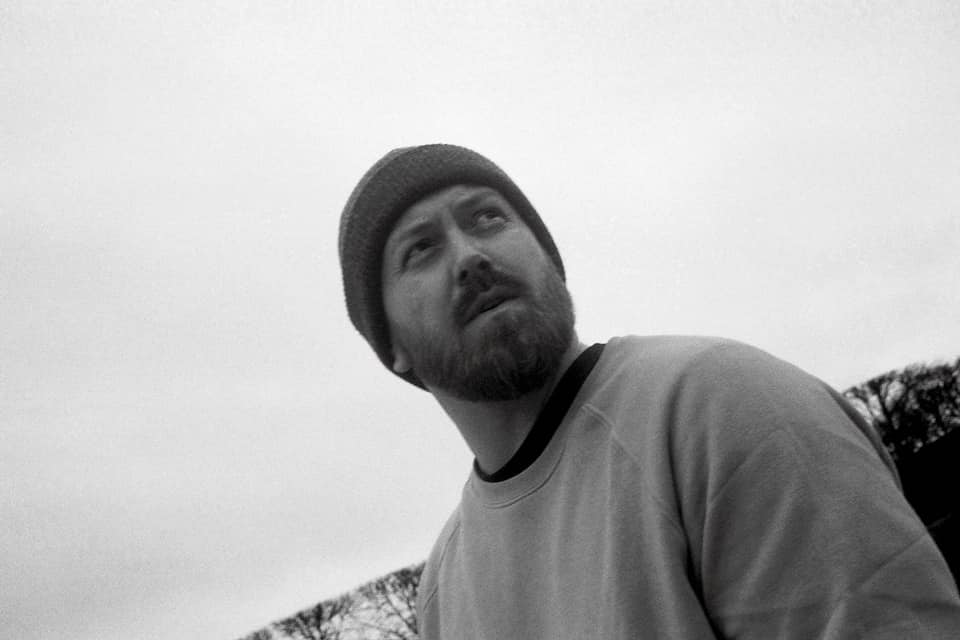
Yeah, that’s literally insane. I loved your cover of Jessie Reyez’ “Figures” too, what’s the track’s resonance for you? And what makes you want to cover a track?
James Gillespie: I think it’s the same kind of thing where some tracks just fucking resonate and just stick with you. For me, with “Figures” it’s that vibe of just like I wish I could hurt you back. No matter how much love you have for somebody if they hurt you there is that feeling of I wish you could fucking feel exactly what I feel right now and I wish you could hurt in the same way you’re hurting me because you don’t care that much to hurt like that or even realise that you’ve harmed me that much. For me, that’s such a nice way to look at it because I’ve never really written a song that’s like fuck you for hurting me like that; like I really hate it and you really hurt me but I still love you so it’s still a sweet song and it’s still got such beauty within it.
The song’s still saying you could have me whenever you want but you really fucking hurt me, and I think that’s quite rare in a song. “Figures” has got that beauty and that love in it, but it’s still sort of saying fuck you.
Going back to your releases now, “Beyond Today” is such an amazing track. What was the creative process like for that track? And where did the phrase “beyond today” come from?
James Gillespie: I used to live over in the Canary Islands until I moved to London, and when I arrived I had like literally nothing. I moved over here and didn’t even have like a penny to my name and I was out busking, and I was kind of thinking like maybe I’ve made a huge mistake because my life in the Canaries was so good. The quality of life out there was so good; I was in the sea every day. I was playing in this little bar beside one of the top 10 beaches in the world, which was like five minutes away from my place.
It was just so perfect, and it was so healthy as well in a lot of ways, but there was a couple of ways where it was unhealthy as well. But most of the time it was just so healthy and so beautiful. I didn’t really care about anything else and everyone knew each other; I had a fucking flip phone five years ago. Like no joke man I didn’t even have an Instagram account; I had Facebook, but I never fucking used it. Even if I wanted to, I would have had to have gone on a computer and used; compared to now where it’s the opposite of that. Everything was so, so simple and so easy. If I wanted to get in touch with somebody, I’d phone them and talk to them. It’s kind of cliché to say that no one ever writes or calls but I kind of loved that.
When I moved to London, I was just so poor, and I was struggling with the fact I didn’t even know who my neighbours were, and I didn’t know that many people. It was just a really drastic change. There was definitely a point where I was like I don’t know what I’ve done. I was sitting at night-time panicking about what I am I going to do. I would go out and busk at the middle of the night and I’d be like is what tomorrow is? Is that what happens? Do I just carry on during this until I can no longer survive? And then what? What do I do after that? If music is everything that I am and this is it, then what do I do? Do I just stay in this miserable place, with this horrible feeling? It really brought me to a pretty low place, and it was pretty horrific.
You mentioned that you lived in the Canaries, but you were born in England and raised in Scotland. How do you think being raised in Scotland influenced your sound? Was there any defining artists that you used to see or anything like that?
James Gillespie: I left Scotland when I was really young. I went travelling when I was really young, I went off when I was like 15/16. When I left, I went to Spain and I travelled non-stop until I arrived in London pretty much. So really the only music stuff that influenced me in Scotland was just stuff that my friends were listening to. I was more into hip-hop; I didn’t listen to a huge amount of guitar-based music until I was around 15/16. Then I like left and lived in Spain with my guitarist Ed and he used to give me quite the education; he was a bit older than me.
When I started exploring the world I started hearing and seeing so much more than I did before. Suddenly, it was like my eyes had been opened to all this other shit and all these other artists. It was only then that I was able to go out because I wasn’t 13 anymore; I could actually go out and listen to bands and listen to artists and understand more about live stuff, and really get into it.
You mentioned that like only 5 years ago you had a flip phone so it must be crazy to see some of your tracks blow up on streaming services. On Spotify alone, “What You Do” has clocked up like 19 million streams, can you even comprehend numbers like that?
James Gillespie: Not even a little bit. Even now, it’s so weird because I can see like a little dashboard with the actual numbers and they’re in front of me, I still can’t fathom how a song can be listened to that many times. It all still seems pretty nuts to me.
I think the annoying thing is that you almost get used to the sound of the number and then you forget the actual meaning of it. So now, I look at songs and I’m like that’s on 19 million when that hits 20 I should do a massive thank you to everybody. You kind of almost bypass it and I think that’s maybe a good thing, because if I dive into it too much maybe I would start to worry about songs that haven’t hit 19 million. Or feel like I should try and replicate the one that has hit 19 million or feel like I should try and replicate the one that has hit 19 million, which I currently don’t do at all. I think that’s probably a good thing for my own head.
Obviously, the numbers are insane, but does playing live make those ridiculous numbers seem a bit more tangible?
James Gillespie: 100%. I think with the European tour coming up, that’s when I realized that people around Europe or even around the world are wanting to buy tickets to come and see me. And that’s when you realize that those like 30 million streams or whatever, that’s where they’ve come from. Streaming has made it possible for my music to have reached out to all these people. You know, we’re getting requests to play in LA, Australia and Brazil. And it’s only then you realize like they’ve not gone on holiday to London and seen me play at the Omeara. They’ve been reached out to by this amazing network; Spotify, Apple and all these other places that have pushed this record out into playlists and random people who have shared it. It’s then that you realize that’s the cool thing about the streams; you’re suddenly able to do shows around Europe and stuff like that. Whereas, it was just CDs and those numbers didn’t exist I definitely wouldn’t be doing shows in places like Budapest and Zurich.
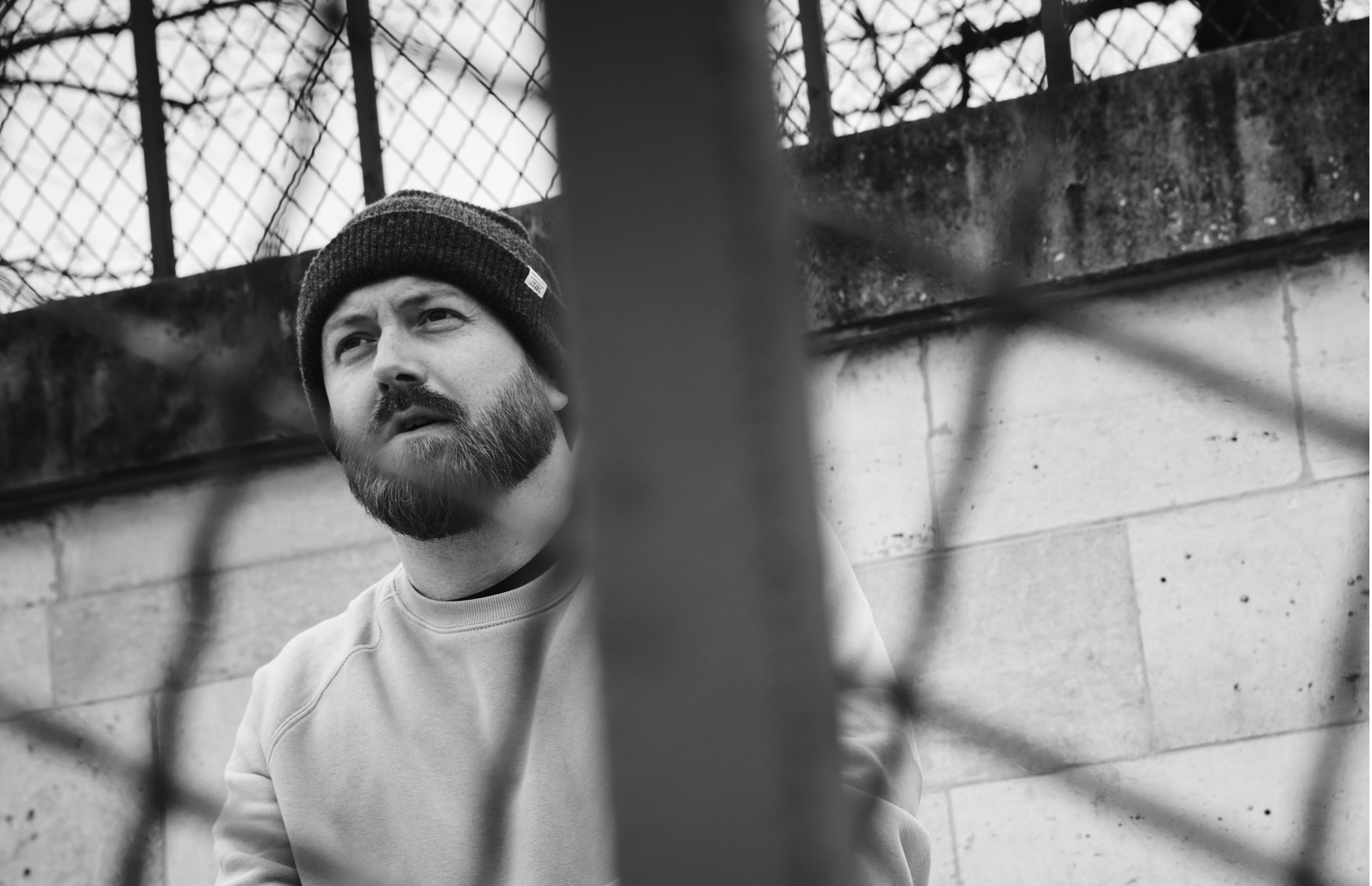
On that upcoming European tour, are there any particular places you’re looking forward to visiting the most?
James Gillespie: The place I’m looking forward to playing the most on the European tour is actually probably Budapest. I’ve been there a few times and just always had such a wicked time. I’m looking forward to Vienna as well. I haven’t played there for a long time and it’s always been as a support act. And that’s the European ones; I think two of the other places I want to play are probably Brazil and Japan. I’m desperate to go see those two places. That’s probably also from the very selfish point of view that I just really want to Brazil and Japan. But also Italy has always been like crazy welcoming as an audience. They’re just amazing and I’ve heard the same thing for like Japan. I’ve heard that the audiences are just so attentive and so into it. That’s really exciting for a musician.
As an artist, what’s the most important thing to you?
James Gillespie: For me, it’s probably a little bit different than for most people; it’s about being involved in every part of the process. I can’t imagine going into a studio being given a song was written by someone else, me singing it and then walking out of the studio. Then in a month’s time hearing on Spotify.
In the way, I can’t imagine writing a song, recording it, and then that’s it. I am a part of that from the birth of the song; when it first starts happening on the guitar or paper. And then once I finished writing it, I go into a studio and I co-produce with my friends. I’m a part of every beat that’s made, every little synthesizer bit so that every little bit that we put into the song is a part of me too. And then even when it’s finished, you know, I get a big say in who mixes it afterwards, and where it gets mastered, and who does the mastering. And then even then, when that’s finished, I then design and draw all the artwork for the song, because I feel like it’s so fucking crazy to leave that process any point because if someone else comes on, you could be like the best photographer in the world, right? Or like the most famous album designer in the universe and you could probably design me a cover that’s insane and way better than anything I could even dream of.
But unless you’ve sat down with me for like, a month, and you know who I am and who I wrote the song for and how that happened; it might not connect in the way that I wanted to when I wrote it. For me, my involvement goes from the very start of a song until it’s completely finished. Then when it’s out and it’s been played live, that’s when the process has kind of come to an end. That’s when I can be like yeah, I was with that the whole. There’s not a single song which I haven’t done that for.
It can be really annoying, and it can be really time-consuming. It can also be frustrating sometimes, because even if I co-produce a record and then they go, we want to make a couple of little changes someone might say “yeah, but that doesn’t feel quite right.” And I’ll go yeah, I think you’re right. Then they’ll go we’ll just send an email to someone and get them to fix it. But I’m like, yeah, I’m probably gonna come along to that part, as well, just to make sure that we’re all on the same wave here and everything still feels right for the song.
Does that level of intense involvement ever get draining at all?
James Gillespie: Yeah, I think it can be draining, and it can be annoying. It can also get a bit tedious. Especially when you’ve done a song a few times and it still just doesn’t sit right. But again, I feel like that’s why the relationship between yourself and your label is so important. Because when they go like we don’t feel this is quite right; they would never say that to me without having a genuine good reason as to why they think that. When they do that, they explain it to a point were either I agree with them or if they don’t have a reason then I can very happily turn around and be like “actually guys, this is the way it’s meant to be.” There are often times you have to be strong, but also times when you have to shut up and listen.

When you’re looking to release music, what makes you know you want to release a track?
James Gillespie: Good question. I think it’s is kind of dependent on whatever release is before that and making sure that I kind of help people along the journey. Because I think if you release one song, and you’ve got another song that you’ve written, but it’s a totally different vibe then sometimes people can be a little bit like “well hold on a minute, you know, I loved the artist when they were like that, not like this.” So I think that it’s not that you have to release stuff by that method. But it helps people when you kind of guide them along the journey. So if you go, like, I’m the saddest and upset person in the world and then 10 minutes later you release a song that goes “fuck, life is so good, I’m so happy”; people can like mistake that for you not being genuine. They can also mistake it for you just putting out whatever. So I kind of like to have songs that go this is what’s happening in my life or this moment right now. But then my next release will be like, you know what, actually, maybe things aren’t you know, as bad because I have this Then the next song after that can be like “Fuck, I’m so happy that I have this.” Do you know what I mean?
Yeah totally, that’s so interesting to hear because nowadays you see so many artists releasing songs to fit certain playlists or whatever. Like the artist’s last two songs can sound like crazily different.
James Gillespie: Absolutely. Then you hear someone like Lewis Capaldi get into the charts then you’ve got all of these artists coming out with a song where it’s like just a piano and their voice. You can tell that they’re just trying to follow trends.
100%. One last question, what are you most looking forward in the future in terms of your music?
James Gillespie: I think being able to have the freedom to release whatever I want because people have heard my story so far, I’ll the freedom to like go along and work with like a hip-hop artist. Or to go away and do like a dance record because that’s just what I feel. It’s so nice to be able to work with other people like that but at the moment that kind of stuff is quite difficult. And you know, it’s difficult to release, like an EP that’s played on an acoustic guitar, and then do like, a massive house track with someone.
Basically, the truth is I’m looking forward to being able to work with loads of people. The idea of working with someone that’s not the same as me really excites me. Just being able to kind of collaborate with different artists and see the way that they work and go along with their way, and show them my voice and my guitar. I really want to travel and play everywhere too. Like I said, working with different artists and traveling to places like Brazil and Japan are the two main things that really excite me.
— —
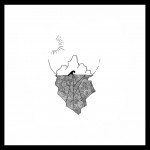
Connect to James Gillespie on
Facebook, Twitter, Instagram
Discover new music on Atwood Magazine
? © 2019
:: Stream James Gillespie ::

